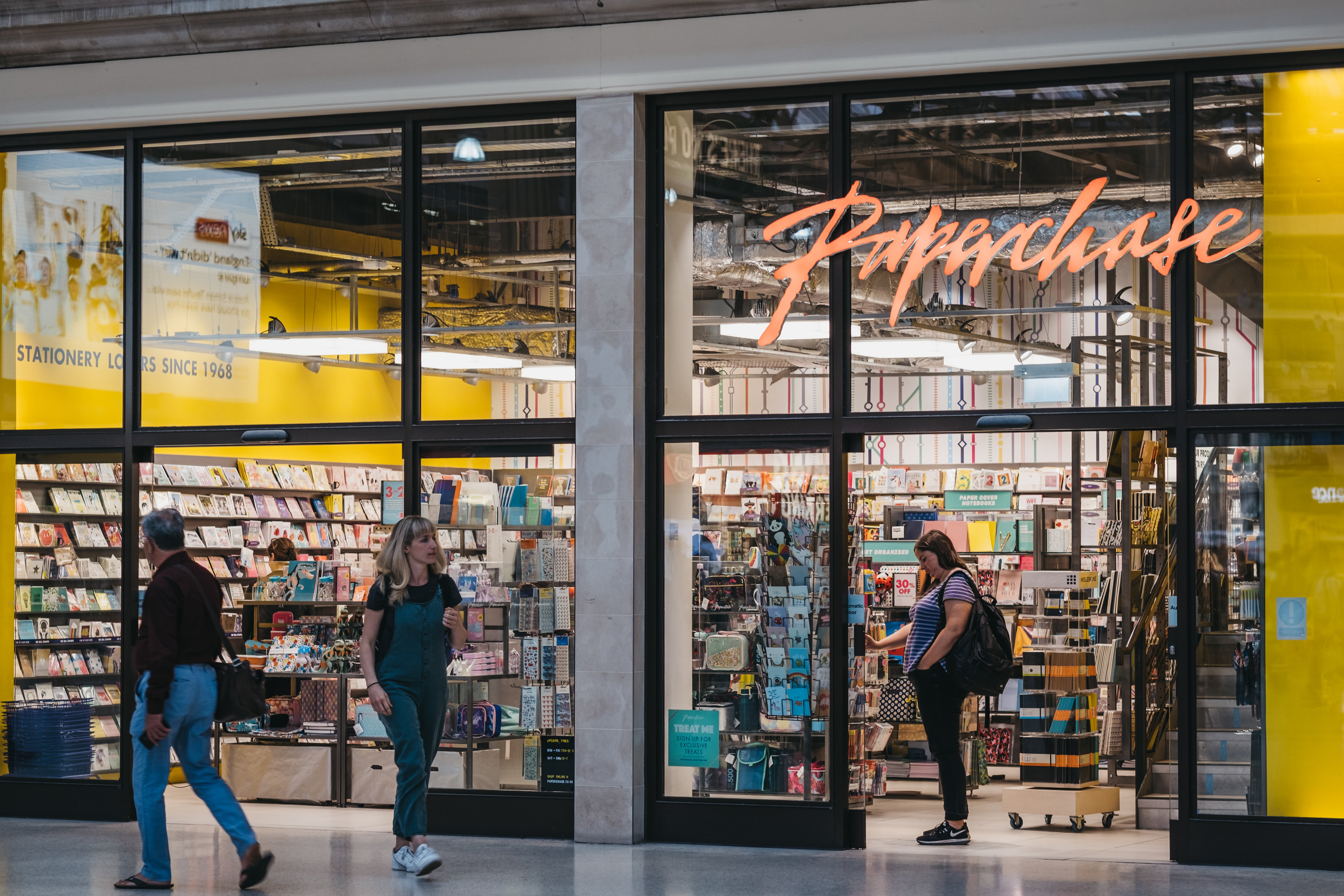Birthday cards and bullet journals: How could we lose stationery mecca, Paperchase?
As the high street chain appoints administrators, Sophie Gallagher looks at how Paperchase sold itself as more than just stationery


Your support helps us to tell the story
From reproductive rights to climate change to Big Tech, The Independent is on the ground when the story is developing. Whether it's investigating the financials of Elon Musk's pro-Trump PAC or producing our latest documentary, 'The A Word', which shines a light on the American women fighting for reproductive rights, we know how important it is to parse out the facts from the messaging.
At such a critical moment in US history, we need reporters on the ground. Your donation allows us to keep sending journalists to speak to both sides of the story.
The Independent is trusted by Americans across the entire political spectrum. And unlike many other quality news outlets, we choose not to lock Americans out of our reporting and analysis with paywalls. We believe quality journalism should be available to everyone, paid for by those who can afford it.
Your support makes all the difference.In a year that has seen the doors of non-essential retailers closed more often than they have been open, perhaps surprise is no longer an appropriate reaction when household-name brands reveal they have been hit by financial troubles.
On Tuesday, stationery store Paperchase announced it was on the brink of collapsing into administration after sales were hammered by the coronavirus pandemic and accompanying lockdowns. The British chain, which has 127 stores and 1,500 employees, confirmed it has filed a notice to appoint administrators after a restructuring in March last year had failed to turn things around.
The months of November and December typically make up 40 per cent of annual sales for Paperchase - with the festive rush for wrapping paper, cards, gifts and even tree decorations - but this year tiered restrictions meant closure of bricks and mortar shops and a move to online retail.
Although the brand has said online sales had performed strongly, it was simply not enough.
While the fate of Paperchase is not yet set in stone - a spokesperson said the brand hopes that by taking this step it can find a “sustainable future” - it rides on the coattails of many other retail empires that have been unable to survive a devastating year for the high street.
After years of battling rising rents, shifts to online shopping and ever-faster trend cycles, for many iconic British brands the coronavirus pandemic has sounded their death knell. The Arcadia Group, including Topshop and Dorothy Perkins, went into administration; Debenhams will cease trading; and Peacocks, Jaeger, Oasis and Warehouse, all had to appoint administrators.
While some seemed more predictable than others - based on competition from new players or a failure to develop an adequate presence online - it is clear from the Paperchase announcement that the survival of any of our favourite brands should not be taken for granted.
Paperchase captured a younger demographic, looking for alternatives to their grandparents’ card-shop-of-choice
Founded by two art students, Judith Cash and Eddie Pond, in 1968, Paperchase grew quickly, receiving investment from WHSmith and the Borders Group respectively. In 2010, Paperchase concessions were formed in a number of HMV and Waterstones before a management buy-out.
The brand successfully captured the money of a younger demographic, looking for alternatives to their parents’ or grandparents’ card-shop-of-choice, Clinton Cards (which also went into administration in 2019 but later was sold out), or a station concourse WHSmith, for last-minute cards and wrapping paper.

In November 2017, the company pinned its colours to the mast when it issued an apology for running an advert in the Daily Mail newspaper, following a campaign by the group Stop Funding Hate. It said in a statement, posted to Twitter: “We now know we were wrong to do this - we’re truly sorry and we won’t ever do it again. Thanks for telling us what you really think and we apologise if we have let you down on this one. Lesson learnt.”
As well as selling cards (and a little politics), the brand successfully captured the stationery market during what can only be described as the pinterest-bullet-journal-boom.
Stationery was marketed as a wellness and self-care or self-help tool (their latest advertising campaign labels notebooks as “beautility items” - beautiful utility), complete with sets of gel pens, highlighters and stickers.
And this wasn’t just for seven-year-old girls in the obligatory pre-school September stationery haul: in 2016, it was reported the stationery sector was set to grow by £49m within five years to £2.1bn in 2021, with almost 60 per cent of stationery customers being women.
Notebooks became objects to be desired while being accessible at a low price point - an affordable treat
The experts credited the growth of stationery as a gifting option to new innovative products such as bullet journals and design-led products. No longer were notebooks just for writing in, they were objects to be desired while being accessible at a low price point - an affordable treat.
A growth in crafting over the last decade - between 2006 and 2020 the number of customers grew from 6.9 million to 31.6 million - also saw Paperchase capitalise on items such as photograph books, art supplies and wedding items, for those looking to cut costs and add a personal touch.
And for when you’d bought too much of the stationery, they had the Marie-Kondo-worthy storage solutions to tidy it all away.
For anyone who had visited the company’s flagship store on Tottenham Court Road, regularly described on Tripadvisor as “heaven” for stationery, this strong 360-degree brand presence was evident. Customers on Twitter have, in the wake of the news, describe how Paperchase is somewhere to go on lunch breaks from work to destress or distract. But given many people have spent the last nine months working from home rather than in office blocks and city centres, this need has diminished.
The coming weeks will lay bare the future for Paperchase: whether it is able to retain a presence on the UK high street post-Covid or whether it’ll join the graveyard of 2020 retailers. Whatever the outcome, it’s clear the high street - and perhaps our stationery supplies - will never look the same again.

Join our commenting forum
Join thought-provoking conversations, follow other Independent readers and see their replies
Comments